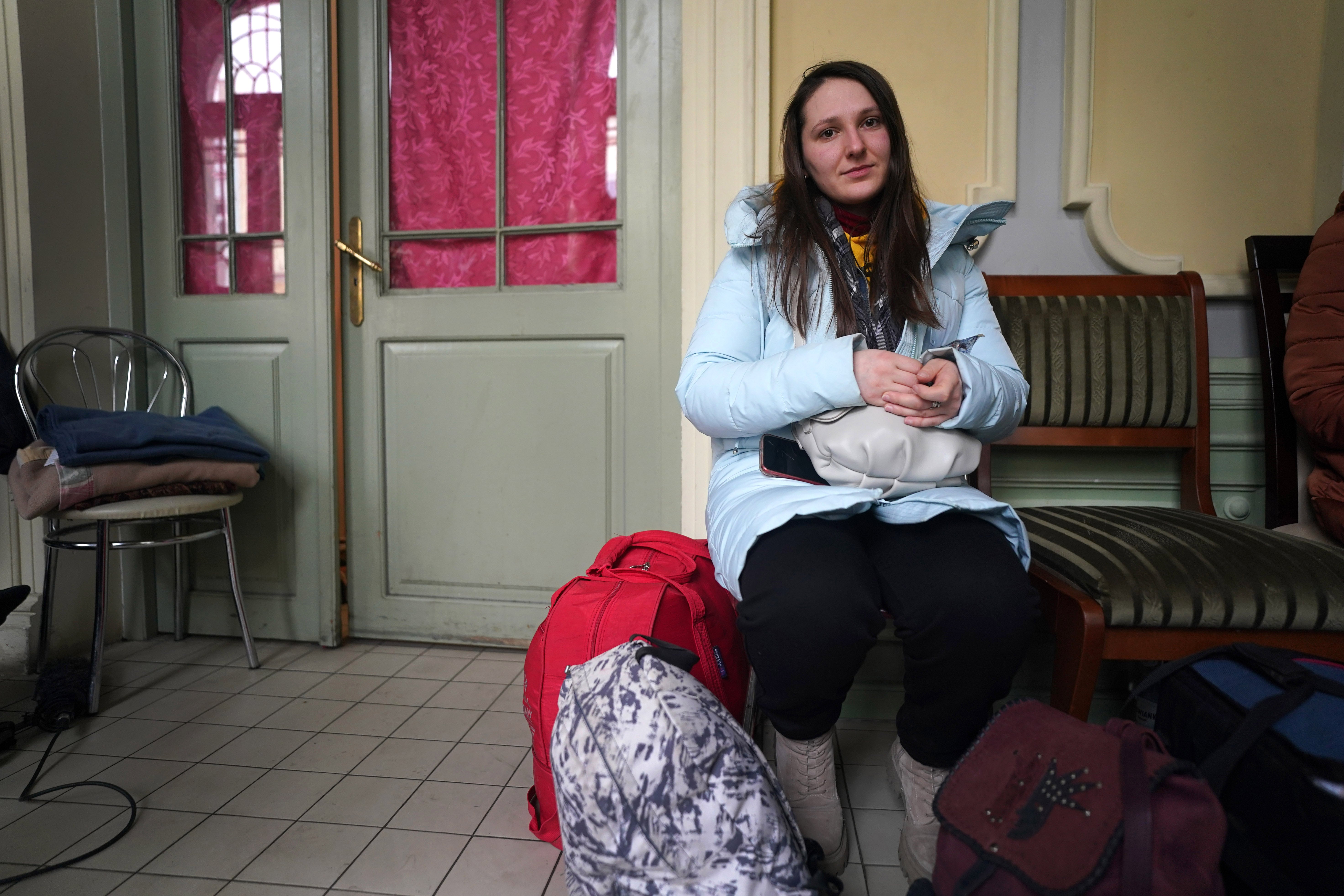Ukrainian refugee ‘sad and angry’ at Russian invasion
Yana Syniavina and her mother Liubov Syniavina fled Kyiv when the war began.

Your support helps us to tell the story
From reproductive rights to climate change to Big Tech, The Independent is on the ground when the story is developing. Whether it's investigating the financials of Elon Musk's pro-Trump PAC or producing our latest documentary, 'The A Word', which shines a light on the American women fighting for reproductive rights, we know how important it is to parse out the facts from the messaging.
At such a critical moment in US history, we need reporters on the ground. Your donation allows us to keep sending journalists to speak to both sides of the story.
The Independent is trusted by Americans across the entire political spectrum. And unlike many other quality news outlets, we choose not to lock Americans out of our reporting and analysis with paywalls. We believe quality journalism should be available to everyone, paid for by those who can afford it.
Your support makes all the difference.A Ukrainian refugee has said she feels “sad, confused and angry” about the Russian invasion and hopes all her family can be reunited one day.
Yana Syniavina, 26, and her mother Liubov Syniavina, 52, were living in the capital Kyiv, northern Ukraine, when the war began on February 24.
They fled with their family to Cherkasy, 119 miles south of Kyiv, on the first day of the war.
But as troops moved further into Ukraine, Yana and her mother made the decision to leave the country.
They travelled 10 hours on a bus to Poland’s border with Ukraine, to Medyka, south-west Poland, on March 15 and arrived at Przemysl train station, 30 minutes from the border, the following morning.
They are now planning an 11-hour train journey to Vienna, Austria where they will be reunited with Liubov’s sister.
She told the PA news agency: “On the first day of the war we woke up because we heard explosions. We were scared and decided to go with our whole family to live in a city in another region as it was more quiet.
“We were there all this time while the war [was going on] and today we came by bus to Poland to the Polish border.
“The journey was OK because we had a very good driver but it was hard as it was a long way at night. We were quite scared at times. But we’re here now and we’re so glad of the help that Poland gives us.”
She said of the outbreak: “We feel, sad, confused and angry because they came to our land. They came to our homes.
“Of course it’s very painful to leave your home, to leave your family, part of your family, and choose to go somewhere, it’s hard.”
Yana’s stepfather and brothers have remained in Ukraine. Some are fighting the war, but some are too young to join up.
“I don’t know [if they will come to Vienna],” she said. “We all want to come back home to Ukraine. We hope it will be temporary there. But who knows.”
When the women arrived at the train station, they were helped by volunteers of Caritas Poland, which has been involved in the aid efforts at Przemysl train station for the past two weeks.
Caritas is a local partner of the Catholic Agency for Overseas Development (Cafod).
Cafod is one of the Disasters Emergency Committee’s (DEC) 15 member charities in the UK.
Thirteen of the member charities are working directly or through their local partners in Ukraine and in neighbouring countries to help the humanitarian crisis.
Due to its links with the DEC, donations made to its Ukraine Humanitarian Appeal have helped fund the aid effort being undertaken by Caritas staff and volunteers in Przemysl.
Its appeal has hit £175 million in just two weeks.
The charity has established a women and children’s centre at the train station and also distributes aid packages to those who arrive there.
Natasza Bogacz, 34, a project adviser for Caritas Norway, said Caritas has been looking after those who have fled Ukraine over the past two weeks.
She was sent to Przemysl by Caritas Poland to provide aid.
She told PA: “Hundreds, thousands of people have come through here every day since we’ve been here.
“Every train holds around 600 people and there’s trains coming all the time.
“The idea here is to get as many people out further with trains and buses, so to Krakow, to Germany and other places in Europe, as soon as possible.
“Many people have an address but most people don’t have a destination.”
She described the work by the charity as an “enormous effort”, saying the workers do long shifts to help the refugees as much as possible.
“Having been here for two weeks, I noticed that I really crave hope,” she said.
“Having heard all these stories and the tragedies, and seeing all the small kids, it’s really hard to be positive about the future.
“The only thing that can help us and help the people from Ukraine right now is solidarity. So I look at the funding from abroad as a symbol of solidarity, and that gives me hope.”
Saleh Saeed, chief executive of the DEC, said: “It is heartwarming to hear about the work of Caritas within Poland and on the borders.
“A safe space to rest, eat, and for children to play together safely at Przemysl train station helps them cope with all they have been through.
“We know all our member charities are working extremely hard in a challenging environment. Thank you to all the people who have donated to enable them to do this vital work.”
To donate towards the DEC’s appeal, visit: www.dec.org.uk